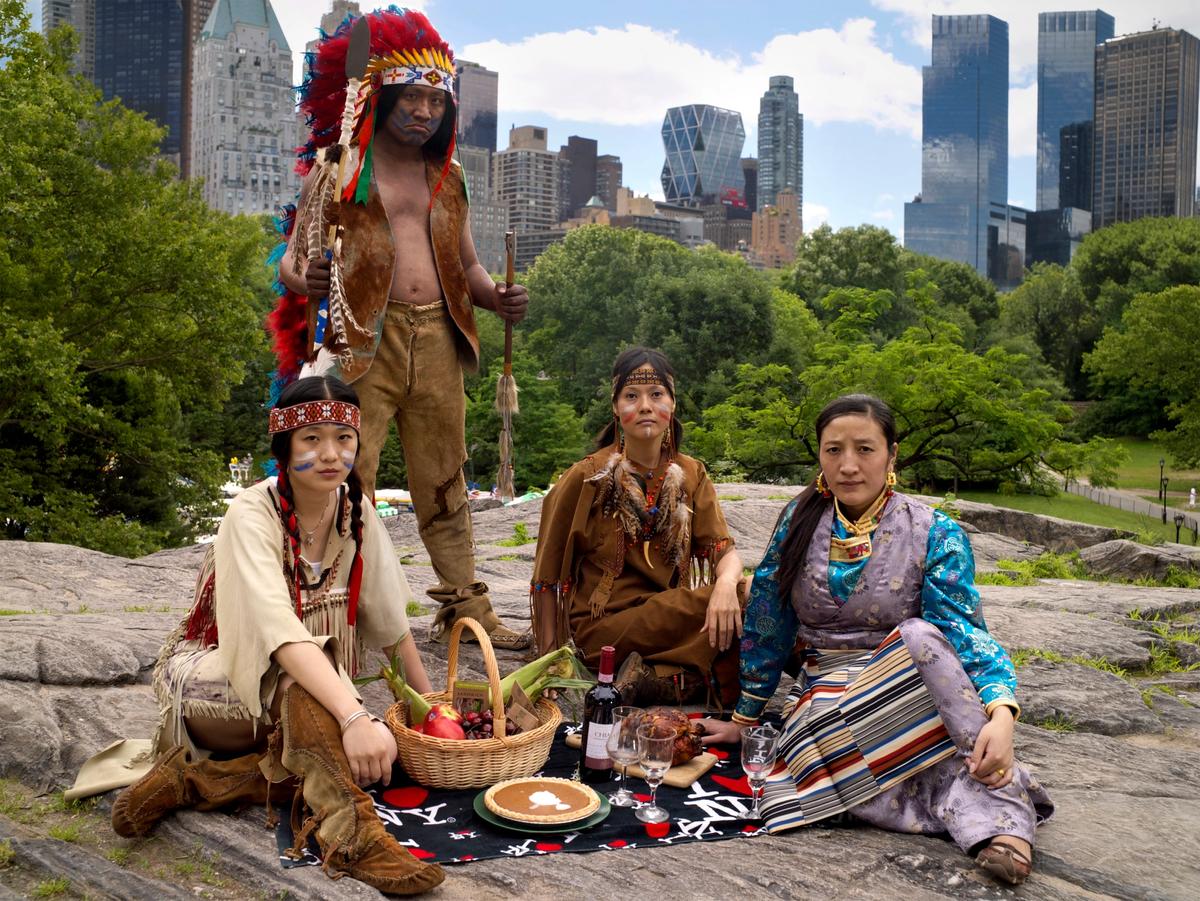The New York Foundation for the Arts (NYFA) has removed a work featuring “redface”, a racist caricature of Native American culture, from a recently opened exhibition in Brooklyn, following complaints from a Native artist.
The photograph, Picnic, Central Park (2009), by the Taiwanese artist, Ching-Yao Chen, shows Chen wearing a headdress and buckskin with reddish-brown body paint, standing next to three seated women, all in costume and with their faces painted. The picture is part of the series I Love New York and was displayed in the multi-venue exhibition Urban Tribes, which explores diversity in the city. It is organised by the private non-profit Taiwanese American Arts Council.
After attending the show’s opening in Brooklyn last week, the artist Jason Lujan, who is of Chiricahua Apache and Mexican heritage, emailed the organisers to voice his disappointment in seeing Chen employing redface in his work. The wearing of feathers and warpaint by non-Natives “perpetuates American Indian stereotypes, analogous to the wearing of Blackface,” he wrote. “It’s bewildering to me how a curatorial team and a New York City-based organization could sign off on such a thing. I’ve read the text describing the intent of the work — it is at best a poorly thought out excuse to lampoon Natives and at worst a direct insult to the Native American community here in New York… once again it must be said that wearing a headdress and warpaint is no more acceptable than dressing up in a sombrero, a yarmulke, or a hijab.” Lujan, who ended his email with “silence equals complicity”, is due to participate in the second installment of Urban Tribes this autumn.
Luchia Lee, the executive director of the Taiwanese American Arts Council, said that she believes Chen’s intention in the photograph has been misunderstood. In an email to Lujan, she said the Taiwanese artist empathised with the suffering of Native Americans. “In the course of this series,” she wrote, “he celebrated diversity by picturing many different groups identified by costume and [cuisine]. He is frequently using stereotypical icons to fight against divisive attitudes imposed by majorities or by authorities.” Lee noted that one of the women photographed in the Central Park ensemble was Tibetan and was wearing traditional robes. “When she watched her first movies in the US, she was surprised and upset to see Native Americans always portrayed negatively and that their appearance was very similar to her own,” Lee said. Other works in the series show Chen dressed as a cowboy, a samurai, a Roman emperor and a European courtier.
Chen did not respond to requests for comment, and Lee said he was not able to travel to New York to attend the show’s opening because her organisation lacked the funds to fly him over. Two other participating Taiwanese artists were denied visas to come to the US in time for the opening and their appeals are pending, Lee added.
Lee added that she hopes that, after meeting with Lujan and rewriting the wall texts, she can exhibit the series with Picnic, Central Park at a gallery in downtown New York where other works from Urban Tribes are on view. NYFA will not show the picture in its space, said its executive director Michael Royce. I Love New York, minus Picnic, Central Park, is also due be projected outdoors in Brooklyn on 4 July.


